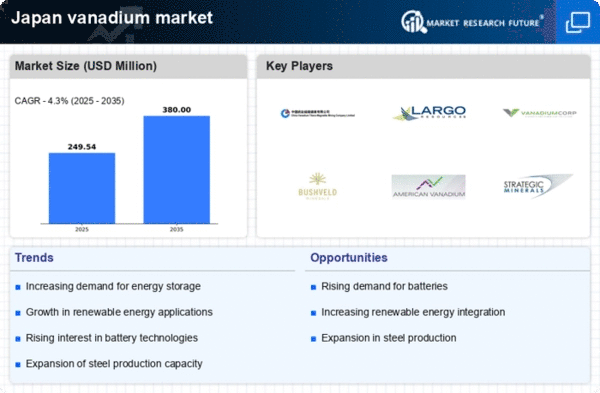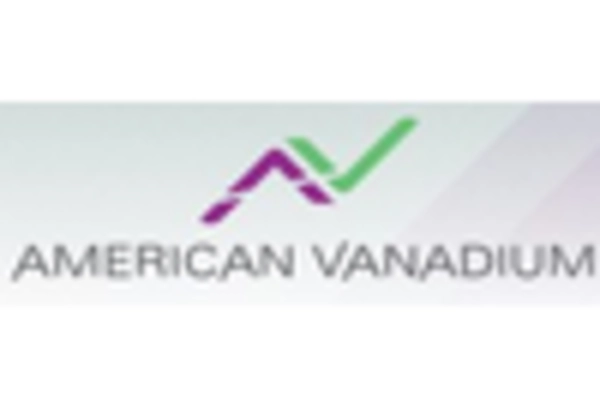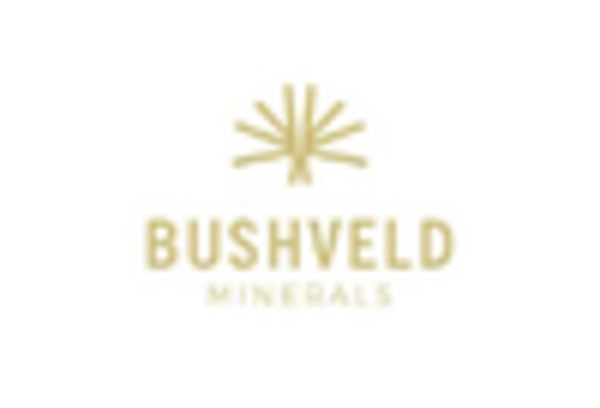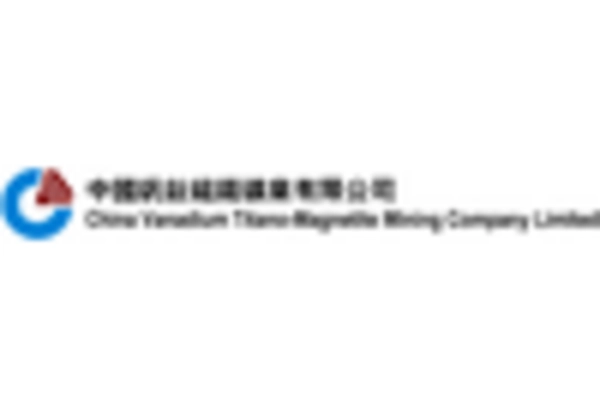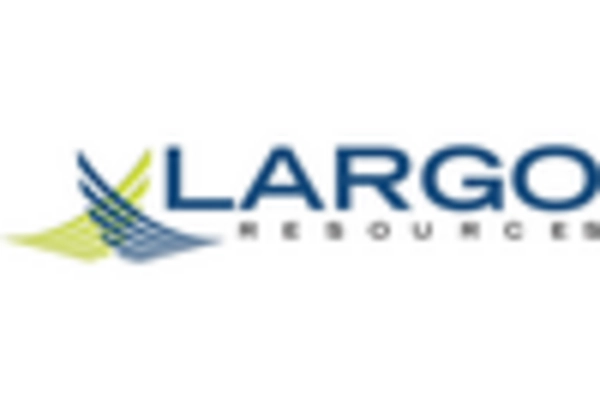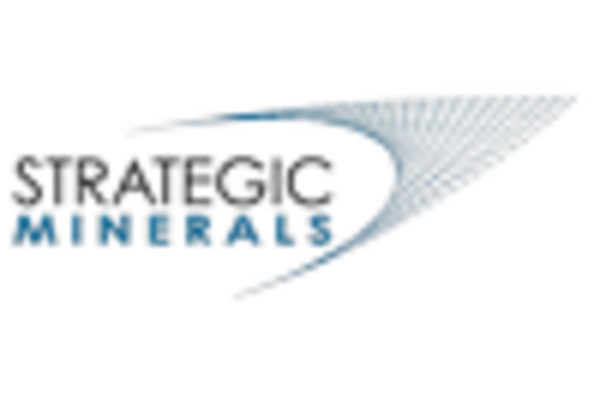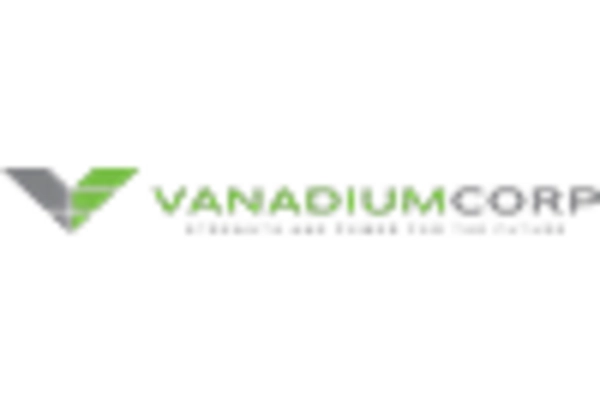The vanadium market in Japan is characterized by a competitive landscape that is increasingly shaped by innovation, sustainability, and strategic partnerships. Key players such as China Vanadium Titano-Magnetite Mining Company Limited (CN), Largo Resources Ltd. (CA), and Bushveld Minerals Limited (GB) are actively pursuing strategies that emphasize technological advancements and regional expansion. These companies appear to be focusing on enhancing their production capabilities while also exploring new applications for vanadium, particularly in energy storage solutions, which is a growing segment in the market. Their collective efforts contribute to a dynamic environment where competition is not solely based on pricing but also on the ability to deliver innovative solutions and sustainable practices.In terms of business tactics, companies are increasingly localizing manufacturing and optimizing supply chains to enhance efficiency and reduce costs. The market structure seems moderately fragmented, with several players vying for market share, yet the influence of major companies remains significant. This competitive structure allows for a variety of strategies to coexist, fostering an environment where innovation can thrive alongside traditional practices.
In October Largo Resources Ltd. (CA) announced a strategic partnership with a leading Japanese energy firm to develop vanadium redox flow batteries. This collaboration is poised to enhance Largo's position in the energy storage market, aligning with Japan's push towards renewable energy solutions. The strategic importance of this partnership lies in its potential to leverage local expertise and resources, thereby accelerating the adoption of vanadium-based technologies in Japan.
In September Bushveld Minerals Limited (GB) launched a new initiative aimed at increasing the sustainability of its vanadium production processes. This initiative includes the implementation of advanced recycling technologies that could reduce waste and lower the carbon footprint of their operations. The significance of this move is underscored by the growing demand for environmentally friendly practices in the mining sector, positioning Bushveld as a leader in sustainable vanadium production.
In August China Vanadium Titano-Magnetite Mining Company Limited (CN) expanded its operations by acquiring a local vanadium processing facility in Japan. This acquisition is likely to enhance their production capacity and improve their supply chain logistics within the region. The strategic importance of this acquisition lies in its potential to streamline operations and increase market share in a competitive landscape, thereby reinforcing their foothold in the Japanese market.
As of November current trends in the vanadium market indicate a strong emphasis on digitalization, sustainability, and the integration of AI technologies. Strategic alliances are increasingly shaping the competitive landscape, allowing companies to pool resources and expertise to drive innovation. Looking ahead, it appears that competitive differentiation will evolve, with a shift from price-based competition to a focus on technological advancements, supply chain reliability, and sustainable practices. This transition may redefine how companies position themselves in the market, emphasizing the importance of innovation and collaboration in achieving long-term success.


